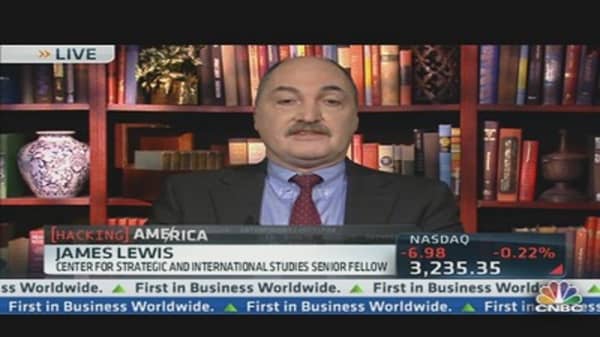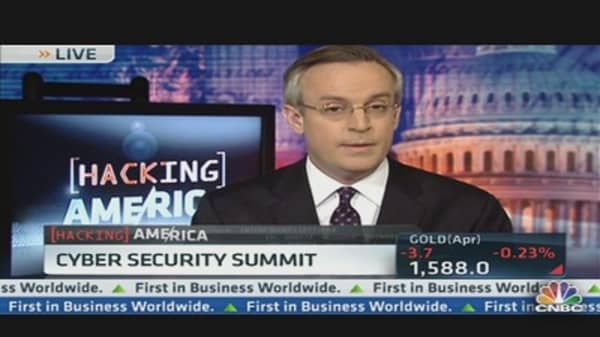As the White House meets with CEOs on the topic of cybersecurity, one expert said that even young amateurs pose risks to corporate computer systems and the U.S. economy.
"It's so easy to get into corporate networks that a determined 12-year-old with good Internet access could download the tools," said James Lewis, senior fellow at the Center for Strategic and International Studies, who advises Congress and the Obama administration on cybersecurity.
"Ninety percent of the successful attacks require only the most basic techniques. It's time to grow up and admit that the Internet is not a safe neighborhood and we have to do different things than just sort of go on assuming that it's blissfully safe."
"Espionage, crime, that's easy. Physical destruction still turns out to be hard," Lewis said on CNBC's "Squawk on the Street" Wednesday, "But people are developing the skills, people are developing the tools. If we stay on the path we are on now, we will see those attacks and that is why the president is meeting with people."
(Related: BP Fights Off Up to 50,000 Cyber-Attacks a Day: CEO)
There is an increasing fear from U.S. companies that their digital systems are at risk and their corporate secrets or customer information could be stolen by hackers exposing vulnerabilities or infiltrating employee computers.
"Things could not possibly get worse when it comes to economic espionage," Lewis said.
Last year, he noted, included Chinese espionage, Russian cybercrime aimed at financial institutions, and Iran going after U.S. banks. "I think it was those three things together that makes it something that can no longer be put on the back burner," he said.
(Read More: China Says US Hacking Accusations Lack Technical Proof)
Although Lewis said the U.S. government has not yet carried out any pre-emptive attacks on hacking threats, the administration has not ruled out the possibility of doing so, if hackers pose a risk to American lives or the U.S. economy.




